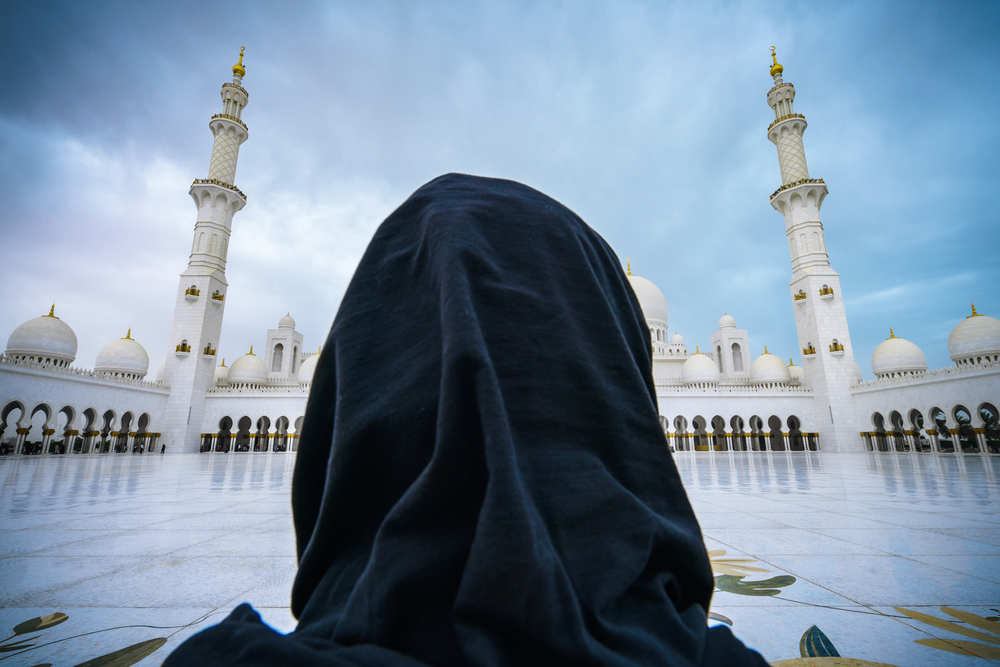
I remember clearly, the light bouncing off his unruly curls. The way his eyebrows almost connected. The beauty of the fact that he didn’t mind. His earring that only slightly shook when he tilted his head back to laugh.
I remember the tumultuous roar of Cafe Medici. Finals week does that. Hamad and I sat accompanied by iced coffee and woes, preparing for our final. Although we had originally come to study, often times we were sidetracked because we simply loved talking to each other! Hamad and I had a very unique and heartfelt friendship. We laughed at the same things and thought the same way.
But we didn’t feel the same way and about a lot of things.
[Read More: “Ramadan Brings Couples Closer Together —That’s What I’ve Always Thought“]
After discussing “the voyeuristic gaze” in cinema, Hamad asked me if I believed in predestination. I did. Hamad didn’t. But Hamad didn’t really believe in a lot of things, religion being one.
Hamad, a born Muslim, had left religion many years ago (for reasons I am not at the liberty to discuss). On several occasions we talked about it, we often got heated and returned to common ground: dog memes.
On my way home from school, I thought hard about the things he said. Although I’ve had questions, highs, and lows, I’ve never thought about abandoning my faith. My faith has guided me through the darkest of times. It has made me more inquisitive, and curious about the world around me. I will tell you, really, there is some magic about looking out your bedroom window at night time and watching the moon and thinking to yourself “Yes. There is more. There is so much more.” Although I will NEVER force someone into my beliefs or try to convince them out of their own, religion is important to me. And it has the right to be.
Since then, I have been very critical of the things I accept as my truth. Hamad taught me this, and it is one of the most beautiful gifts anyone has ever given me. Since then, I have been doing a lot of thinking. About what is important to me, about what aligns with the stars of what I truly believe.
But this gift of critical thinking is a blessing and a curse. Several months have passed by since our conversation, and I am left with these critical thoughts about my religion. But the problem is that my mind has the power to harness the energy to make me doubt basically everything, but it doesn’t have the power to search for answers. Instead, it lets these doubts consume me. These doubts then control me, and I am blinded by my own circular mentality. I become ignorant.
It’s true that I do what is expected of me. I (typically) answer all daily five calls to prayer, I do my laundry every week, I give charity, my GPA is decent, and I wipe the washbasin down in airplane restrooms after use. But when consuming myself in watering the garden of worldly riches, my spiritual well often runs dry.
This month, Ramadan is supposed to be about growing, loving, and blossoming. About forgiveness and kindness. About gratitude and moonlight. Inspiration and rest. Freedom of thought and expression. A love for Allah (God), and a softening of the heart.
I’m observing fasts during the day, praying taraweeh nightly, and I’m rising in the wee hours of the morning to observe qiyam prayers. But tell me why the Imam (is pouring his heart into a duaa (prayer) and everyone around me is crying and feeling and I don’t know what to think? I too, want to feel deeply. To be so in drunken with the sweetness of Islam that even for a little while, my worries dissolve and my heart melts into ishq-al-haqiqi (true love).
But it doesn’t happen. And I don’t know why, but the things I am trying, the books I am reading, the voices I am listening to simply do not settle. But alas, religion comes to us in highs and lows.
[Read More: “Drowning in the Narrative of Ramadan Reflections“]
If you, like me, are having trouble finding that connection, do not give up. Join me. Dig a little deeper. Remove distractions. Surround yourself with nature. Kneel. And let your forehead touch the cold, hard ground. And feel. And if you don’t, try again.
And soon, it will be sweet.
I know people tend to romanticize their relationship with religion and God, but I am here to tell you that if you don’t feel anything during worship, it is okay. Give it some time. Let verses heal your heart. However, be cautious if the problem persists, for it can easily become dangerous. When your heart says nothing during prayer, it is saying something very loudly.
It says, I am a seed. Water me. Burn me a few times if you must, but try to bring me back to life. You need to try, or I will become futile. Then it will only become harder to bring me back to life. And one day it will be too late.
And then you will truly weep.
“Oh soul,
you worry too much.
You have seen your own strength.
You have seen your own beauty.
You have seen your golden wings.
Of anything less,
why do you worry?
You are in truth
the soul, of the soul, of the soul.”
? Jalaluddin Rumi




